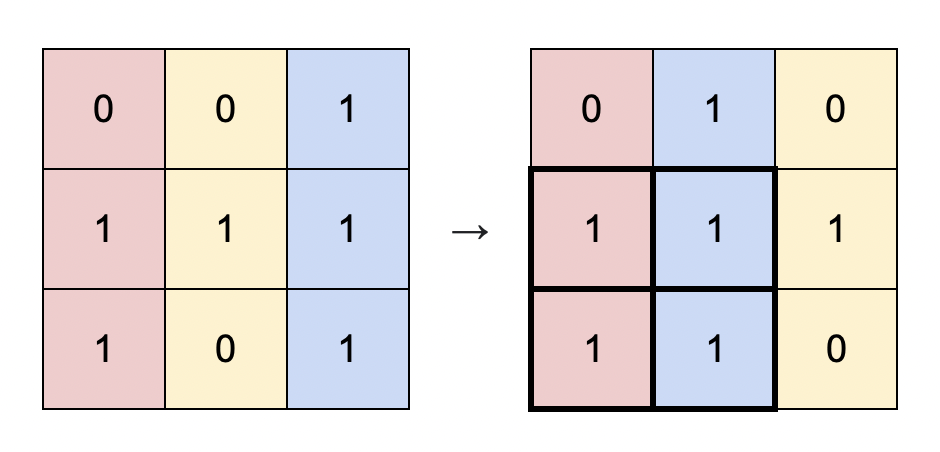1727. Largest Submatrix With Rearrangements


Description
You are given a binary matrix matrix of size m x n, and you are allowed to rearrange the columns of the matrix in any order.
Return the area of the largest submatrix within matrix where every element of the submatrix is 1 after reordering the columns optimally.
Example 1:

Input: matrix = [[0,0,1],[1,1,1],[1,0,1]] Output: 4 Explanation: You can rearrange the columns as shown above. The largest submatrix of 1s, in bold, has an area of 4.
Example 2:

Input: matrix = [[1,0,1,0,1]] Output: 3 Explanation: You can rearrange the columns as shown above. The largest submatrix of 1s, in bold, has an area of 3.
Example 3:
Input: matrix = [[1,1,0],[1,0,1]] Output: 2 Explanation: Notice that you must rearrange entire columns, and there is no way to make a submatrix of 1s larger than an area of 2.
Constraints:
m == matrix.lengthn == matrix[i].length1 <= m * n <= 105matrix[i][j]is either0or1.
Solution
largest-submatrix-with-rearrangements.py
class Solution:
def largestSubmatrix(self, matrix: List[List[int]]) -> int:
rows, cols = len(matrix), len(matrix[0])
res = 0
for i in range(1, rows):
for j in range(cols):
if matrix[i][j] == 1:
matrix[i][j] += matrix[i-1][j]
for row in map(sorted, matrix):
for j, col in enumerate(row):
res = max(res, col * (cols - j))
return res